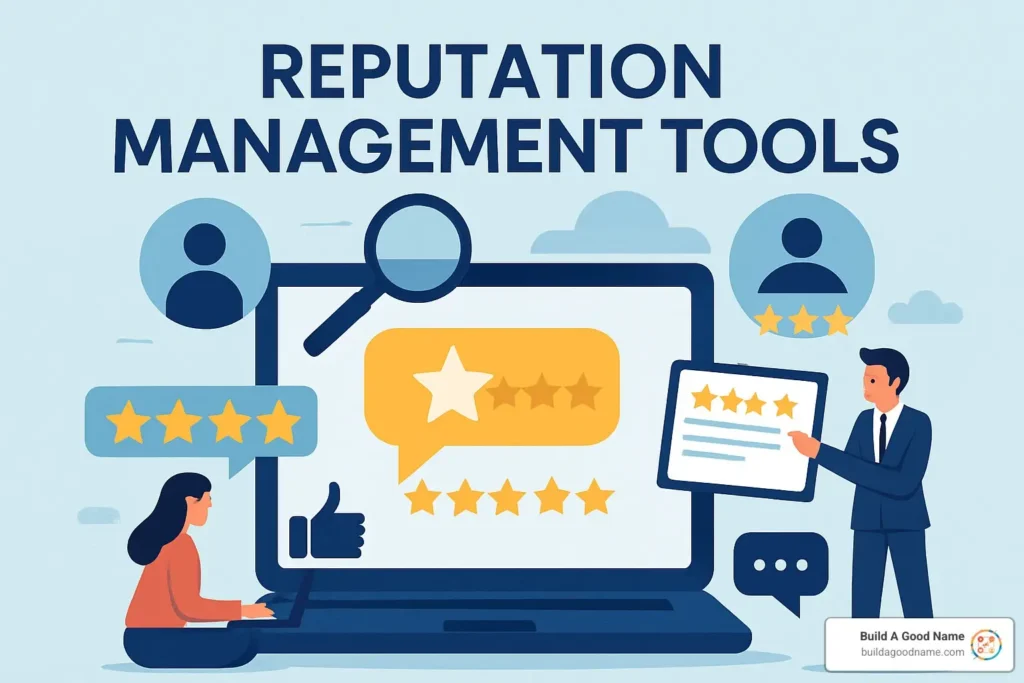Reputation management plays a vital role in shaping a company’s public image and long-term success. It involves actively guiding how your business is viewed by customers, stakeholders, and the general public. Through consistent messaging, timely responses to feedback, and proactive engagement, businesses can build trust and foster loyalty. Reputation management also includes monitoring online reviews, social media presence, and public relations efforts to ensure alignment with your core values.
When executed well, it strengthens credibility, attracts new customers, and reinforces brand identity. Addressing issues transparently and promoting positive stories about your company further enhance its image. Ultimately, reputation management is a powerful tool that helps businesses stay competitive, grow their audience, and secure a lasting positive impression in the market.
Understanding the Core of Reputation Management
Understanding the core of reputation management is essential for creating a strong and trustworthy brand image. It’s about not just reacting to public opinion but actively shaping it over time. Through strategic actions and engagement, your brand can build a narrative that resonates with your audience, establishing a positive, lasting impression. Here are key aspects to understanding reputation management:
Monitoring Online Conversations
Tracking online mentions is vital for understanding what people say about your brand. By monitoring social media platforms, review sites, and blogs, you can stay informed about public sentiment. This allows you to address potential issues early on and maintain control over how your brand is perceived.
Engaging with Customers Effectively
Customer engagement is at the heart of reputation management. Actively interacting with your audience on various platforms helps create an open, approachable image. Responding to feedback, answering questions, and participating in conversations shows your brand values its customers and is willing to listen to their needs.
Responding to Criticism Proactively
Not all feedback is positive, but handling criticism constructively is a crucial part of managing your reputation. Addressing negative reviews or comments promptly and professionally can turn a dissatisfied customer into a loyal advocate. It shows that your brand takes responsibility and is committed to continuous improvement.
Building a Positive Brand Narrative
Reputation management isn’t just about reacting; it’s also about promoting a positive narrative. This involves sharing stories, achievements, and customer successes that highlight your brand’s values and contributions. By showcasing the positive aspects of your brand consistently, you reinforce trust and loyalty with your audience.
Consistency Across All Channels
Maintaining a consistent message across all platforms is key to reputation management. From your website to social media and customer interactions, your brand’s voice should remain the same. This consistency builds credibility and ensures that customers always know what to expect from your brand.
In conclusion, mastering reputation management requires a blend of monitoring, engagement, and proactive strategy. By carefully managing how your brand is perceived, you ensure long-term success and foster trust with your customers. Building a strong reputation can positively impact your business’s growth and customer loyalty.
Building Trust Through Transparent Brand Communication
Transparent communication stands as one of the most vital pillars of effective reputation management. When brands choose to engage with their customers openly and honestly, they lay the foundation for lasting trust. This transparency can be demonstrated through various channels such as websites, social media platforms, and customer service interactions.
By clearly sharing information about company policies, product updates, or service changes, brands signal integrity and accountability. In moments of error or crisis, admitting mistakes and providing sincere solutions not only shows responsibility but also strengthens customer loyalty. Over time, this approach fosters credibility, resilience, and a loyal customer base.
Addressing Negative Feedback to Strengthen Brand Image
Negative feedback is an unavoidable aspect of running a business, but the way you respond to it can greatly influence your brand’s reputation. Rather than disregarding or dismissing complaints, taking the time to address them with empathy and professionalism can actually strengthen how your brand is perceived.
A timely and respectful response shows that your business values its customers and is dedicated to improving their experience. When handled with care, even negative feedback can become an opportunity to showcase your commitment to customer satisfaction, potentially turning unhappy clients into loyal and vocal supporters of your brand.

Monitoring Online Mentions and Social Media Impact
In today’s digital landscape, online mentions and social media activity significantly influence how a brand is perceived by the public. Actively monitoring these platforms enables businesses to track conversations, uncover emerging trends, and better understand the expectations and concerns of their audience.
By staying informed about what people are saying on social media, forums, and review sites, companies can respond quickly to questions, address complaints, and clear up any misinformation. This ongoing engagement not only safeguards the brand’s reputation but also strengthens customer relationships and helps create a credible, appealing image that draws in new and loyal customers alike.
Leveraging Customer Reviews for Brand Growth
Customer reviews play a crucial role in shaping a brand’s reputation and are one of the most effective tools in reputation management. These reviews act as a form of social proof, helping potential customers gauge the quality and reliability of your services based on real experiences.
By actively encouraging customers to share their feedback, you not only gather insights for improvement but also build a public dialogue that promotes transparency. Responding to both positive and negative reviews shows that you value your customers’ opinions. This engagement strengthens trust, enhances brand loyalty, and drives long-term business success through consistent credibility.
The Role of Consistency in Brand Reputation
Consistency plays a critical role in effective reputation management, serving as the foundation for building and sustaining a positive brand image. A strong reputation doesn’t happen overnight—it’s the result of repeated, reliable actions across every touchpoint.
From social media interactions and website content to customer service and in-person engagement, every aspect of your brand must reflect the same core values and tone. This alignment builds familiarity and trust among your audience. When customers know what to expect, they’re more likely to return and recommend your brand. Ultimately, consistency creates lasting impressions and elevates your brand above the competition.
How Reputation Management Influences Customer Loyalty
Effective reputation management plays a crucial role in building and maintaining customer loyalty. When customers perceive a brand as trustworthy and responsive, they feel valued and respected, which significantly influences their decision to return. A consistent effort to uphold a positive brand image—by addressing feedback, resolving issues promptly, and consistently delivering on promises—helps establish a strong emotional connection with the audience.
This ongoing relationship encourages repeat business and generates word-of-mouth referrals. Reputation management is more than just protecting your image; it’s about cultivating genuine trust that transforms occasional customers into dedicated, long-term supporters of your brand.
Conclusion
Mastering reputation management is a crucial strategy for enhancing your brand image and fostering lasting customer relationships. By consistently monitoring and managing your online presence, addressing feedback, and communicating transparently, you can build a trustworthy brand that stands out in a competitive market. Reputation management is an ongoing effort that, when done right, can significantly impact your brand’s growth and success.
At Build A Good Name, we are dedicated to helping businesses maintain a positive reputation. Located at 29500 Stadium, we provide expert reputation management services to enhance your brand’s image and build trust with your customers. Call us at (951) 268-0170 today!



